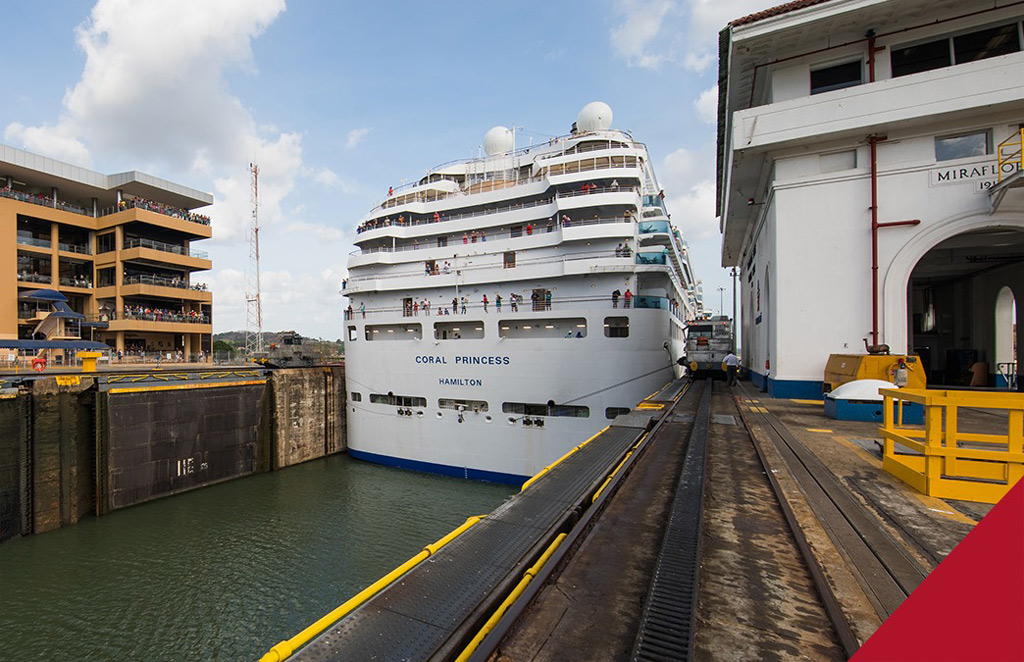The Panama Canal has added new fees and changed its reservation system to counter historic drought levels.
“Due to changing rainfall patterns and historic low water levels at Gatun Lake, the main source of water for the waterway, the Panama Canal today that it will implement a series of new measures beginning February 15 to sustain an operational level of water and provide reliability to customers while it implements a long-term solution to water,” said a statement from the Panama Canal Authority.
This past year’s rainfall was 20 percent below the historic average and the fifth driest year in 70 years. It follows several years of lower than average rainfall coupled by a 10 percent increase in water evaporation levels due to a 0.5-1.5 degree Celsius rise in temperature.
Without fee and operational changes, the Canal’s water levels are projected to drop to levels that would affect the Neopanamax and Panamax Locks. These new measures are intended to better provide reliability in water levels and therefore transit schedules.
A new freshwater fee will be applied to all vessels over 125 feet in length overall (LOA) that transit through the Panama Canal, and will include the following components: A fixed fee of $10,000 per transit and a variable fee ranging from a minimum of 1 percent to a maximum of 10 percent of the vessel’s toll will be applied depending on Gatun Lake levels at the time of transit (i.e. if the lake has a higher level, the percentage will be lower and vice versa).
The Panama Canal will adjust the number of daily reservation slots available to 27, replicating the total offered during lane outages.
The waterway will also require that each vessel pays its booking fee in full no later than 48 hours depending on the booking period.
A handling service fee will be applied to all visits for transit at the time they are created in the system. The processing fee will be applied as follows: For vessels 91 feet in beam and over: $5,000. For vessels over 125 feet LOA, but less than 91 feet in beam: $1,500.
The fee will be deducted from the vessel’s tolls invoice once the vessel begins transit. If the vessel cancels the visit and does not transit, the Vessel Visit Creation Fee will not be refunded. All visits created prior to February 15, 2020 will be honored and will not be required to pay this fee.
“The decision to adopt such measures was taken following an evaluation of the impact of innovative techniques already instituted to save water used in the Canal’s operations. For example, the Panama Canal has been implementing cross-filling lockages, a technique that sends water between the two lanes at the Panamax Locks during transits and saves an amount of water equivalent to that used in six lockages each day,” the Panama Canal Authority said.





